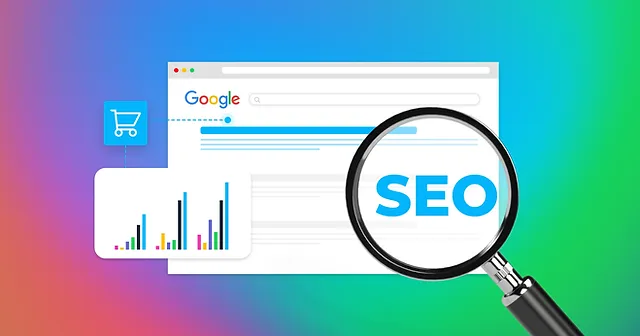Data protection is of utmost importance in anonymous web hosting services, as it ensures that both personal information and online activities remain private and anonymous. With cyber threats, data breaches, and surveillance becoming ever more prevalent online, it’s critical that users understand how these anonymous services protect their information.
Underneath the internet lies a virtual sanctuary known as anonymous web hosting services that provides privacy and security. Have you ever considered who stands guard? Data protection professionals play an unheralded role in keeping sensitive data safe from cyber criminals.
As we explore anonymous web hosting, it becomes apparent that data protection is no mere frill; rather it is essential. With governments, corporations, and cybercriminals all fighting for access to your personal data, the stakes have never been higher. Anonymous hosting services recognize this threat and have put in place stringent safeguards ranging from encryption and secure servers to IP address protection and privacy guarantees – to ensure its protection.
Features of Data Protection in Anonymous Web Hosting:
1) Encryption: Data encryption is at the heart of data protection in Anonymous Web Hosting environments. It ensures that all transmitted and stored information on servers is converted into a form that only authorized users can access – this includes file transfers, emails and stored information on websites.
2. No Logs Policy: Anonymous web hosts often employ a strict no logs policy that prohibits them from storing any information about your website’s traffic, uploaded data or downloads – an essential precaution against leakage of sensitive information or legal inquiries.
3. Secure Payment Solutions: In order to maintain their users’ anonymity, hosting providers often accept cryptocurrency payments such as Bitcoin which do not require identification from its users – thus significantly decreasing the risk that financial data would become linked with someone’s identity.
4. Isolation of User Data: Through virtualization techniques, providers can isolate each website hosted on the same server to avoid cross-site contamination and cyber threats that target other users.
5. Regular Security Audits: Anonymous web hosting services conduct regular security audits to ensure all security measures remain up-to-date and effective, helping identify vulnerabilities before they become exploitable. These audits help detect and address vulnerabilities before being exploited by attackers.
Factors to Consider while Choosing the Anonymous Web Hosting
1. Jurisdiction: Your hosting provider’s jurisdiction could impact the privacy of your data due to different data protection laws in different countries, so opt for providers located in those with stricter data privacy protection regulations for optimal protection of your personal information.
2. Technology Used: Before selecting a hosting provider, evaluate their technology stack (hardware and software), to make sure it offers modern protection from modern threats. Outdated technology may not provide adequate protection.
3. Provider Reputation: Do your research before selecting a provider; those with long histories in upholding privacy and security standards tend to be more reliable.
4. Service Level Agreements (SLAs): Review SLAs to understand the level of data protection guaranteed by providers, including details about encryption, backups, and disaster recovery plans.
5. Compliance and Certifications: Before selecting any service provider, verify their compliance with international data protection standards such as GDPR, HIPAA or PCI DSS regulations as an indicator of their commitment to data security.
Conclusion
Data protection plays a pivotal role in anonymous web hosting services, serving as the cornerstone of their promise of privacy and security for individuals and organizations looking to preserve anonymity online. Selecting a hosting provider who prioritizes data protection is of vital importance; users who value anonymity should select one who prioritizes it so as to better safeguard their activities against emerging cyber threats.
FAQ’s
Q1: Does anonymous web hosting guarantee complete anonymity?
A1: Unfortunately, no system can offer complete anonymity; however anonymous web hosting significantly enhances privacy by minimizing the amount of personal data at risk.
Q2: Does anonymous hosting cost more than traditional web hosting?
A2: In general, yes; additional security measures and technologies used to maintain anonymity can lead to higher costs for hosting these types of websites.
Q3: Can Anonymous Web Hosting Be Used for All Types of Sites?
A3: Yes, however you must comply with all legal standards in your host country – illicit activity such as hacking is typically not tolerated even on anonymous hosting platforms.
Q4: How can I select an anonymous web hosting provider?
A4: Consider factors like jurisdiction, data protection features, payment options and compliance with data protection standards when making this choice.
Q5: What can happen if my anonymous hosting provider is compromised?
A5: In the event of a breach, its impact can vary considerably. Providers with strong data encryption and isolation measures may offer greater protection, so always inquire into their incident response and disaster recovery plans to assess which is the most secure provider for your data needs.
Equipped with a Bachelor of Information Technology (BIT) degree, Lucas Noah stands out in the digital content creation landscape. His current roles at Creative Outrank LLC and Oceana Express LLC showcase his ability to turn complex technology topics into engaging, easy-to-understand content for their websites.
Lucas specializes in writing technology guides. His work is distinguished by its clarity and relevance, making daunting tech subjects accessible and interesting to a broad audience. His guides are not just informative but are a testament to his skill in bridging the gap between technical expertise and everyday usability.
In addition to his tech-focused articles, Lucas has a keen eye for capturing the essence of his surroundings. His writing transcends technology, as he effortlessly brings to life various observations and experiences in his articles. This versatility not only demonstrates his wide-ranging interests but also his ability to connect with readers on multiple levels.
Lucas Noah’s writing is a fusion of technical acumen and a deep appreciation for the world around him, offering readers a unique and insightful perspective on both technology and life.






